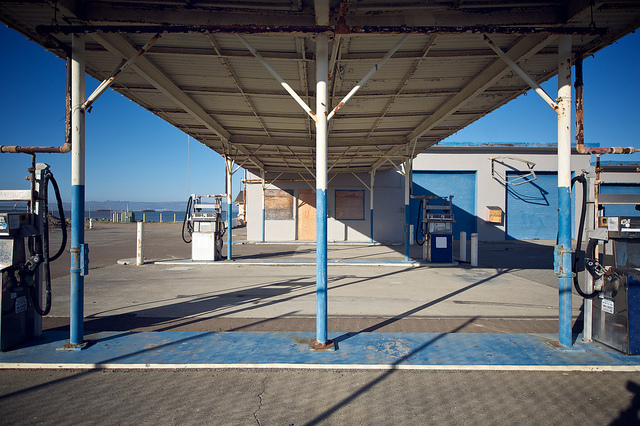
VANCOUVER — Councillors in two Vancouver-area cities that have long banned self-service gas stations have mixed views on whether the time has come to allow residents to top up their own tanks.
Richmond has barred do-it-yourself fill ups since 1966 while Coquitlam has had a similar policy in place since 1959, despite repeated efforts by industry to roll back the restrictions.
Richmond’s mayor, Malcolm Brodie, said he is not aware of any recent interest in changing the city’s long-standing practice requiring stations to employ attendants to pump gas.
The price of full-service gas, which is traditionally higher, renewed the debate when Richmond last considered the issue more than a dozen years ago, but it turned out customers were paying the same as they would at self-service facilities outside the city, Brodie said.
“We get full service for self-service prices,” he said.
Richmond Coun. Harold Steves echoed Brodie’s view that there is little appetite to revisit the issue.
“The aging population really likes the full serve,” Steves added.
Richmond Coun. Carol Day said it might be worth looking at the policy again and encouraged industry representatives to put together a proposal and approach city hall to make the case for change.
One of the original justifications for the bylaw was to create and protect jobs, which she said no longer applies.
“It’s getting harder and harder to find people willing to work for minimum wage,” she said. “We have more jobs in Richmond than we have adults to fill them.”
The recent focus on gas station policies comes as the state of Oregon reversed its full-service requirements for some fuel providers. The shift has been met with vocal opposition from some residents, who raise concerns about safety and not wanting to smell like fuel.
In Coquitlam, city council is expecting a staff report later this year in response to an application from the energy giant Chevron that is asking for a bylaw amendment that would allow for self-service stations.
Second-term Coun. Craig Hodge said he would be open to changing the system provided full service is still available for residents who need it.
“For me, it’s about making sure that the people who require full serve have full serve,” Hodge said. “Any time you have a policy that’s been in place this long it’s always worth reviewing it to see if it’s still relevant and current.”
The original justification for the bylaw appears to have been safety, which is no longer as pertinent now that people are better versed in how to pump their own gas, he said.
Hodge said a primary concern for him is around the difficulty of late-night access because Coquitlam gas stations tend to shut down by 11 p.m., which he understands to be a result of the full-service requirement.
“It’s very difficult for residents who are working shift or who are returning home late to find a place to fill up their car. If any changes are contemplated I think it has to be to address those late-night hours,” he said.
He added that checks and balances would be necessary to make sure gas stations don’t cheat by appearing to offer a mixed service, but force full-service customers to wait unacceptably long periods.
Fellow Coquitlam Coun. Dennis Marsden said any staff proposal that didn’t include some element of full service would be a “non-starter.”